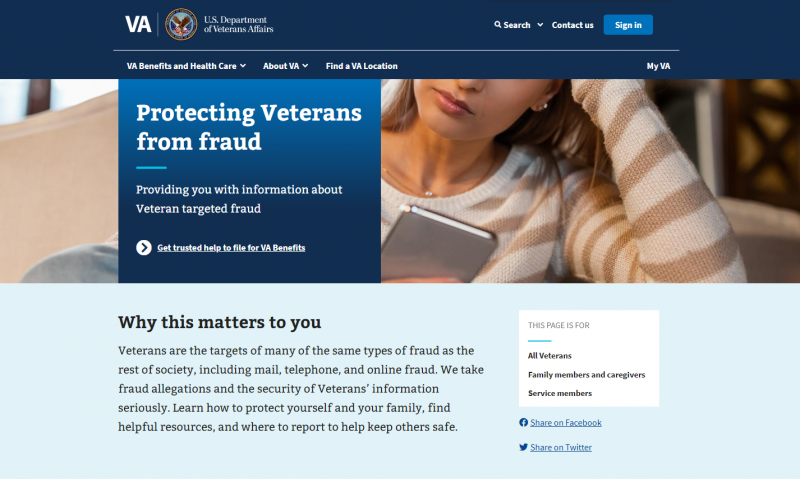
The VA has a fraud prevention toolkit on common scams impacting veterans and preventative measures to avoid fraud.
Scammers are currently targeting veterans by sending postcards that state the veteran is entitled to extra VA benefits, or that there is a Social Security check credit that is awaiting them, with an urgency to respond.
“Scammers are creative, and their schemes are constantly evolving,” said Krystle Good, chief and lead analyst for Benefits Delivery Protection & Remediation at the Veterans Benefits Administration. “And fraud affects veterans and their family members of all ages, no matter what branch of service you were, no matter what your rank was. These criminals are targeting everyone.”
Good shared current scams affecting veterans:
Imposters and phishing scams. Good said she received a text message saying she had a refund from the IRS and to click the link to claim it. She has also received a text message that said her Netflix account was overdue and must click the link to verify information or her account will be suspended. “These scammers are incredibly creative with the different techniques that they will use to deploy and try to get you to click on these various links and to enter your personal information. They are trying to get your personal identifiable information.”
Payment requests with gift cards, wire transfers, pre-paid debit cards or cryptocurrency. “The different ways they try to get you is essentially untraceable methods,” Good said, adding to beware of cryptocurrency schemes. “A lot of these cryptocurrency schemes and different payment methods will say, ‘Your holdings are ensured by the Federal Deposit Insurance Corporation (FDIC).’ Not true. Unlike your traditional bank accounts, cryptocurrency is not insured by the FDIC.”
Social media interactions. Scammers will reach out through social media claiming to be a former military friend, have a job opportunity.
Good provided the following tips to avoid fraud:
- Never share banking information
- Verify the identity of anyone asking for personal information.
- Don’t click on unknown or suspicious links
- Use trusted payment methods
- Be wary of social media requests
- Maximize privacy settings for all social media accounts
For more information on veteran fraud prevention, click here or download the VA’s Fraud Prevention Toolkit.
- News

